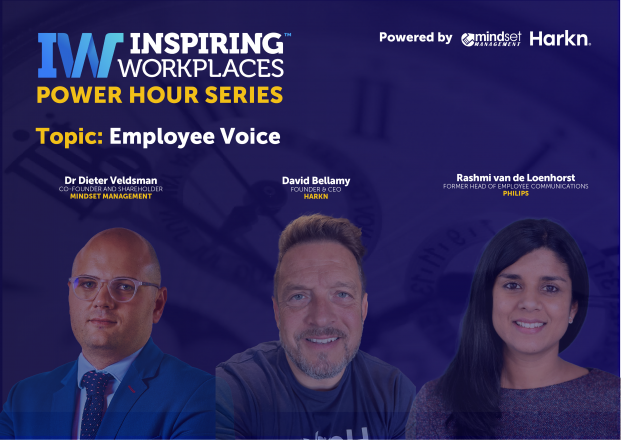
02nd December 2024
When Silence Speaks: The Impact of Mental Health on Workplace Communication

Employees experiencing mental health issues, like depression and anxiety, may stay silent due to fear or feeling ineffective. Voice endorsement, or supporting employees’ input, can mitigate this silence, encouraging a more open environment. Organizations can foster belonging and safety by valuing mental health, offering resources, and promoting supportive workplace cultures.
This article was written by Kyle Brykman & Anika Cloutier and published in The Conversation.
What happens when the loudest voice in the room suddenly falls silent?
Consider a woman named Isla who is known in her office as the idea generator. She regularly participates in meetings, offers opinions about new directions and critiques strategies that are misaligned with company values. By all accounts, she is a star employee.
Lately, however, her co-workers have noticed a shift in Isla’s demeanour. She’s notably quiet in meetings, only chiming in when prompted. She doesn’t contribute nearly as much and seems disengaged from work. Her vibrance and passion for sharing ideas has been replaced by a palpable silence. Her co-workers can’t help but wonder: what happened to Isla’s voice?
This scenario may be hypothetical, but it’s not uncommon in the workplace. Even the most vocal employees experience phases of silence — intentionally withholding ideas, information or concerns that could otherwise benefit them and their organization.
Research shows there are many benefits to employees speaking up at work. In another recent study, we found that employees who spoke up more often and effectively were evaluated as better performers and more deserving of promotion.
Research also shows that speaking up can enhance organizational and team performance, innovation and learning. On the flip side, when employees don’t speak up in the workplace, it can have serious consequences. Several prominent organizational disasters, including the Boeing 737 MAX crashes and Space Shuttle Challenger disaster, have been linked to employee silence.
It follows, then, that if we want to reduce the prevalence of silence at work, we need to better understand why some employees keep silent and explore how organizations can best intervene. To answer this question, our research explored how fluctuations in mental health, specifically symptoms of depression and anxiety, relate to fluctuations in employee silence.
Linking mental health to silence
Mental health ranges along two continuums: well-being (such as positive self-regard and a sense of purpose) and mental illness (such as symptoms of depression and anxiety). Everyone experiences varying levels of both, and these experiences tend to flare up and settle down over time.
Depression involves persistent feelings of sadness and a loss of interest, often accompanied by cognitive and physiological impairments like an inability to focus and exhaustion. Anxiety is characterized by feelings of self-doubt and persistent worries that something will go wrong. It often includes distinct cognitive and physiological impairments like muscle tension and obsessive thoughts.
Depression and anxiety have become increasingly prevalent worldwide: over 20 per cent of employees report clinical diagnoses of depression and anxiety, and up to 75 per cent report experiencing at least one symptom while working.
Depression and anxiety are linked to employee silence because they tap into two main reasons people withhold ideas: fear of negative repercussions and the belief that speaking up won’t make a difference.
Experiencing depression and anxiety tends to shift employees’ perceptions of their work experiences as more negative, threatening and meaningless. These symptoms relate to employee silence because they tap into two main reasons people withhold ideas: fear of negative backlash (also known as defensive motive) and the belief that nothing will change (also known as ineffectual motive).
Accordingly, we predicted that experiencing depression would make employees feel speaking up is pointless, and experiencing anxiety would make them feel it is dangerous, resulting in more silence.
Voice endorsement as an antidote
As organizational researchers and mental health advocates, we also explored whether certain organizational behaviours can offset this tendency, and identified voice endorsement as one potential antidote.
Voice endorsement reflects the degree to which people accept and/or support an employee’s ideas and concerns. We theorized that receiving endorsement would challenge the belief that speaking up is dangerous and pointless, signalling that using their voice is actually a safe thing to do and can make a difference.
We tested our predictions by conducting an experience sampling study, which involved surveying 136 employees about their work experiences across four weeks. The results supported our predictions that depression and anxiety relate to silence through ineffectual and defensive motives, respectively.
Voice endorsement, however, offered a silver lining: the impact of depressive and anxious symptoms on silence was reduced during weeks in which employees experienced greater endorsement.
To continue reading this article in full click here: Silence speaks volumes: How mental health influences employee silence at work.






